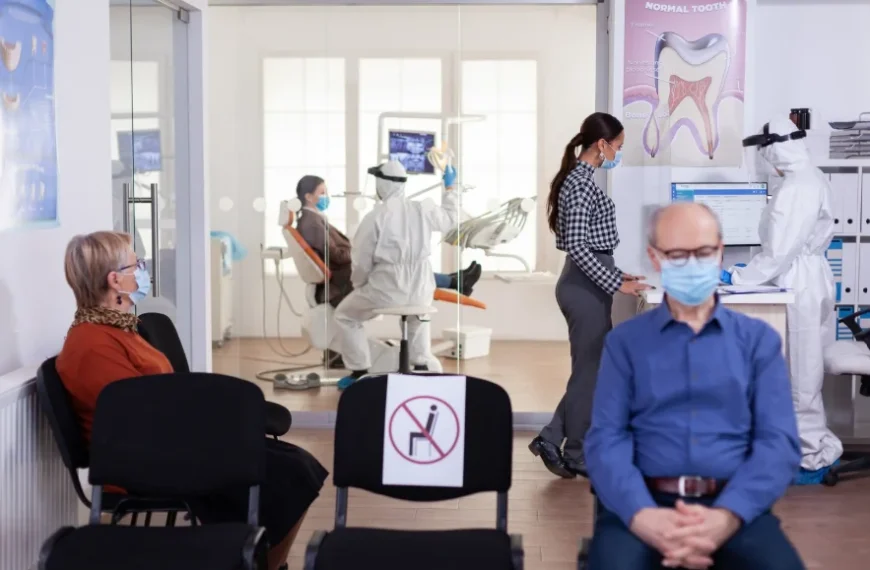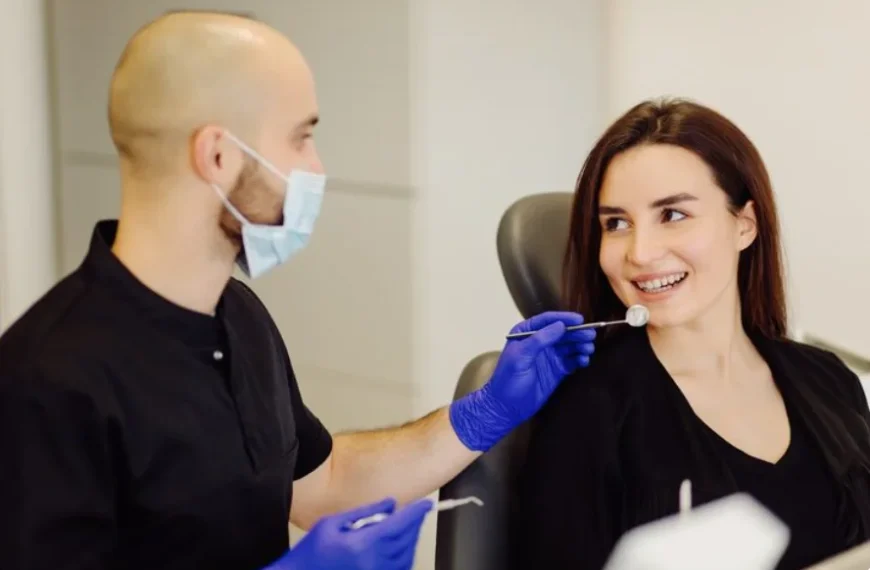Addiction is often seen as a hidden illness. It doesn’t typically happen overnight; rather, it develops gradually. It starts with occasional use, then increases in frequency, eventually becoming a strong compulsion. By the time many people recognize the issue, the addiction has already impacted their health, relationships, and overall quality of life. Identifying the early warning signs of addiction is crucial for timely intervention. Whether it involves drugs, alcohol, prescription medications, or behaviors, the sooner someone spots the red flags, the better the chance of recovery.
For those struggling with more advanced stages, residential rehab programs provide a safe and structured environment where individuals can receive round-the-clock care, professional guidance, and emotional support to rebuild their lives.
This article discusses the early signs of addiction, the mental and physical changes to be aware of, and when to seek help.
What is Addiction?
Addiction is a long-term condition where a person compulsively engages in a substance or behavior despite negative effects. It alters the brain’s reward system, leading to cravings and making it hard to stop, even when the person wants to.
Key Characteristics of Addiction:
- Cravings: A strong desire to use the substance or repeat the behavior.
- Loss of Control: Difficulty limiting use or activity.
- Tolerance: Needing more to get the same effect.
- Withdrawal Symptoms: Physical or emotional discomfort when not engaging in the behavior.
- Negative Impact: Ongoing use despite problems in relationships, finances, or health.
Addiction isn’t about willpower; it is a medical issue that can affect anyone.
Why Early Detection Matters
The sooner an addiction is recognized, the easier it is to treat. Many individuals think they can handle it alone, but by the time they acknowledge the need for help, the addiction is often in a severe stage. Seeking a consultation with a perspective of caring for addiction at the right time can make a significant difference, as professional guidance not only helps in safe detoxification but also provides therapy, coping strategies, and long-term support that greatly improve the chances of lasting recovery.
Benefits of recognizing early signs:
- Preventing long-term health issues.
- Reducing the risk of financial, social, and legal problems.
- Increasing the chances of successful treatment.
- Helping loved ones support recovery before conditions worsen.
- Early Warning Signs of Addiction
Addiction can manifest in different ways depending on the substance or behavior involved.
Early Warning Signs of Addiction
1. Changes in Behavior
Behavioral changes are often the first signs. Look for:
- Increased secrecy: Hiding usage or lying about habits.
- Loss of interest: Withdrawing from hobbies, sports, or social activities once enjoyed.
- Neglect of responsibilities: Poor performance at work, school, or home.
- Unpredictable moods: Irritability, anger, or sudden mood swings without explanation.
- Risk-taking: Engaging in dangerous activities like driving under the influence or reckless spending.
2. Psychological Symptoms
Addiction affects mental health early on. Signs may include:
- Obsessive thoughts: Constantly thinking about the substance or activity.
- Anxiety or restlessness: Feeling uneasy when unable to use or engage.
- Denial: Insisting everything is fine despite clear warning signs.
- Low motivation: Difficulty focusing, procrastination, or a lack of interest.
- Depression: Loss of enjoyment in life or ongoing sadness.
3. Physical Changes
Physical signs often become more apparent as addiction continues. Common symptoms include:
- Sudden weight loss or gain.
- Changes in sleep patterns: Insomnia or sleeping too much.
- Poor hygiene or neglecting appearance.
- Unexplained injuries or frequent illnesses.
- Bloodshot eyes, dilated pupils, or changes in skin color.
4. Social and Financial Signs
Addiction often disrupts relationships and finances. Be aware of:
- Isolation: Avoiding family and friends.
- New peer group: Spending time with people who share the same unhealthy habits.
- Money issues: Frequently borrowing, missing funds, or unusual expenses.
- Conflict: More arguments with loved ones about behavior.
5. Substance-Specific Early Signs
Drug –
- Regular excuses to use medication or recreational drugs.
- Carrying drug paraphernalia (needles, pipes, rolling papers).
- Changes in speech, coordination, or alertness.
Alcohol –
- Drinking more often, even in the morning.
- Needing alcohol to relax or socialize.
- Memory lapses after drinking.
Nicotine –
- Frequent smoking or vaping.
- Restlessness when unable to smoke.
- Frequent coughs or shortness of breath.
Behavioral Addictions –
- Spending too much time on the activity.
- Irritability when unable to participate.
- Neglecting meals, sleep, or personal care due to obsession.
Stages of Addiction Development
Addiction doesn’t occur suddenly. It usually progresses through several stages:
- Experimentation: Trying a substance or behavior out of curiosity, fun, or peer pressure.
- Regular Use: Starting to use regularly—during weekends, evenings, or stressful times.
- Risky Use: Increasing use despite minor negative effects, like hangovers or financial strain.
- Dependence: Developing tolerance and withdrawal symptoms.
- Addiction: Complete loss of control, with compulsive use despite harmful repercussions.
Recognizing addiction during the regular or risky use stages is crucial for prevention.
When to Seek Help
It’s often hard to tell when casual use turns into addiction. However, certain red flags suggest it’s time for professional help.
Signs It’s Time to Seek Help:
- Inability to stop despite multiple attempts.
- Experiencing withdrawal symptoms when not using.
- Substance or behavior interfering with work, school, or relationships.
- Engaging in risky or illegal activities.
- Financial or legal issues due to the habit.
- Friends or family expressing concern.
- If any of these apply, it’s time to get support.
- Overcoming the Fear of Seeking Help
Many individuals put off getting help due to fear, shame, or stigma. They may think admitting to addiction shows weakness. In truth, seeking professional help is a sign of strength and bravery.
Common Barriers to Seeking Help:
- Stigma: Fear of judgment from others.
- Denial: Believing the problem isn’t serious enough.
- Fear of withdrawal: Worrying about detox discomfort.
- Cost concerns: Worrying about treatment affordability.
Overcoming Barriers:
- Education: Understanding addiction as a medical issue reduces shame.
- Support networks: Family, friends, or peer groups can offer encouragement.
- Professional guidance: Doctors and therapists can help without judgment.
- Accessible options: Many community programs and hotlines provide affordable or free resources.
Treatment Options
Once the choice to seek help is made, several treatment paths are available:
- Detox Programs
Supervised withdrawal process to manage symptoms safely.
- Inpatient Rehabilitation
Residential treatment centers providing structured care, therapy, and medical support.
- Outpatient Programs
Flexible programs allowing individuals to live at home while attending therapy sessions.
- Medication-Assisted Treatment (MAT)
Medications like methadone, naltrexone, or buprenorphine for opioid and alcohol addiction.
- Therapy and Counseling
Cognitive Behavioral Therapy (CBT), group therapy, or family therapy to tackle underlying issues.
- Support Groups
Alcoholics Anonymous (AA), Narcotics Anonymous (NA), or other peer support communities.
- Lifestyle Changes
Exercise, mindfulness, good nutrition, and stress management to support recovery.
Supporting a Loved One
If you think someone close to you is showing early signs of addiction, your support can make a huge difference.
What You Can Do
- Approach them with compassion, not judgment.
- Share specific concerns instead of making accusations.
- Encourage professional help without pushing too hard.
- Offer to join them for appointments or meetings.
- Take care of your own mental health while helping them.
Prevention: Reducing the Risk of Addiction
While not all addictions can be prevented, certain steps can lower the risk:
- Education: Increasing awareness about the dangers of substances and addictive behaviors.
- Healthy coping skills: Promoting stress management through exercise, hobbies, and social connections.
- Strong support systems: Family and community support can protect against addiction.
- Early mental health care: Addressing anxiety, depression, or trauma before it leads to substance use.
Conclusion
Addiction rarely starts as a major crisis—it begins with subtle changes in behavior, emotions, and health. By learning to spot the early warning signs of addiction, individuals and families can act before the situation spirals out of control.
Seeking help is not a failure—it’s a step toward healing and regaining control over life. Whether through therapy, rehabilitation, medication, or support groups, recovery is achievable, and many people have successfully broken free from addiction.
The most important message is this: don’t wait. If you see warning signs in yourself or a loved one, reach out for help early. The sooner the path to recovery starts, the brighter and healthier the future can be.






